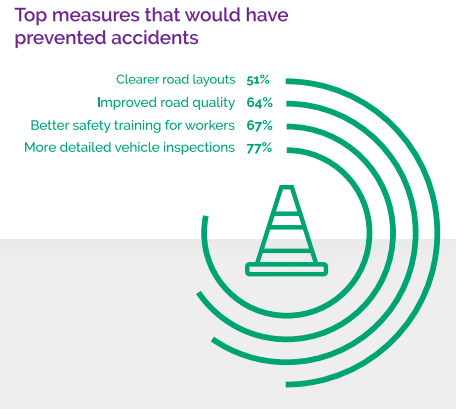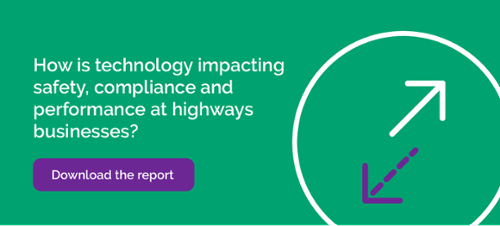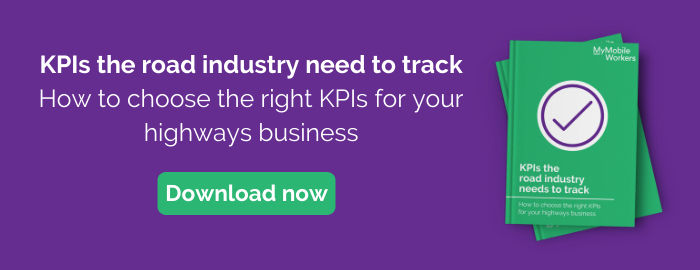
Technology is no longer the problem - it’s the process.
This was the core message delivered by Brian Wise, a consultant with extensive experience of working within the highways sector.
Speaking at the launch of the ‘Driving Change’ report, he looked at the role that technology is now playing in improving highway processes and raising safety and performance standards.
He said: “The technology is no longer the challenge, it’s the process. We have the tools so it’s now a question of identifying the most efficient and effective ways to work.”
See the full presentation from Brian Wise here.
The ‘Driving Change’ report highlights some of the benefits experienced by those highways companies who have made the switch from a paper-based approach to digitally connected management.
Amongst the survey findings was a 26 percent reduction in preventable accidents found for UK highways companies who are using digital processes and tools. You can download the full report here:
Brian Wise outlined how technology is transforming highways management and the ability to manage, monitor and improve performance and safety standards.
Here’s a breakdown of his key steps to achieving an efficient process:
1. Create a clear process
This doesn’t have to be anything complex - and to be effective, it really shouldn’t be. At the most basic level, this is simply getting the right people into a room and working out the best way to approach a task.
Once you have identified an approach and clearly documented the process, you can start to improve on it. You can find ways to reduce the number of steps required, to shorten completion times and to reduce areas where there’s potential errors or risks.
These processes become the bedrock of an efficient and consistent highways operation. With the help of technology, we can now share, record, monitor, manage and improve the ways these processes work.
2. Make the most of data automation
So much of the management and monitoring of processes can now be automated. Digital management systems allow every aspect of a highways operations to be accurately tracked with the data automatically logged and stored.
It provides real-time information on what’s being done, by whom, when and in what sequence. And if any of these elements do not follow the standard process, the system can be configured to let you know about it - with automated alerts and notifications.
These same kind of checks can be used to provide site workers with policy reminders and on-screen messages informing then about correct protocols. This kind of process confirmation provides a powerful tool for integrating safe and efficient ways of working into everyday work-flow.
3. Monitor, maintain and improve
With a clear set of processes established and accurate data easily accessible, it allows working standards to be continually monitored and improved. It lets operation managers see the consequences of actions - how changes to a process impact on a team’s performance.
It allows for the most effective ways of working to be identified and shared. It also helps you to identify those areas of an operation that need to be tightened up. For workers, it gives them clear directions on what’s expected and allows for the setting of realistic and achievable goals.
With a scalable digital approach, an effective, consistent and sustainable process can be maintained over time. By removing so much of the administrative burden, it lets a company better manage growth and the evolving challenges of the highways sector.
While the industry has been relatively slow to switch over to a digital management approach, the ‘Driving Change’ report shows the momentum is starting to build. The study identifies improvements in performance, safety and communications for companies using digital systems and tools.



